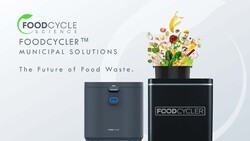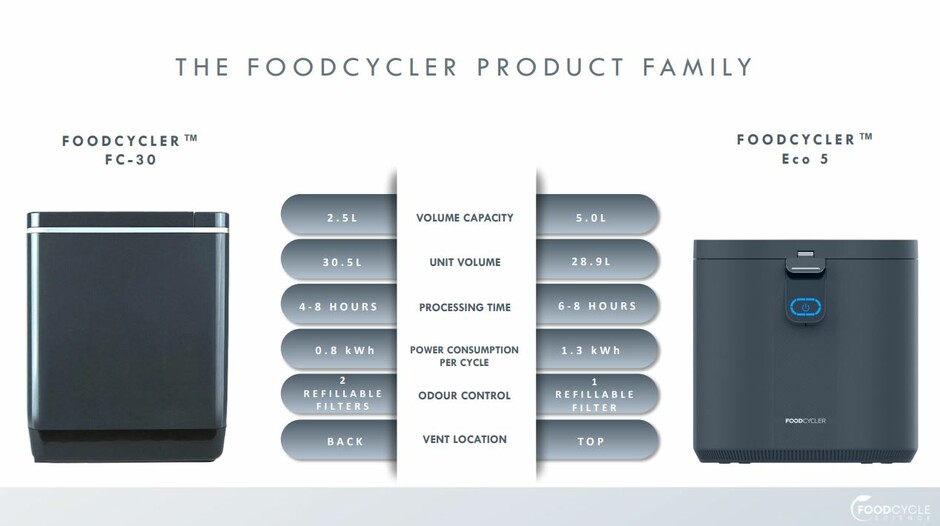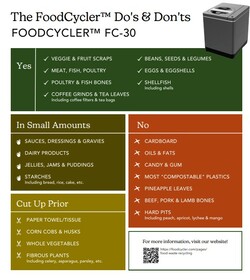In partnership with Food Cycle Science, the District of Sicamous will offer 100 FoodCycler™ units at a subsidized price to residents to use in their homes. Two different-sized units will be available - the FoodCycler FC-30 and FoodCycler Eco 5.
The pilot project will ask participating households to track their waste diversion over the course of a 12-week period by keeping track of how often they run their FoodCycler™.
Each FoodCycler™ is estimated to divert at least two tonnes of food over its expected lifetime. Based on average market rates of $100 per tonne of waste (fully burdened), 100 households participating would divert 200 tonnes of food waste and save the municipality an estimated $20,000 in costs.
The FoodCycler™ turns food waste into a nutrient-rich soil amendment. Learn more about the science behind the FoodCycler™!



